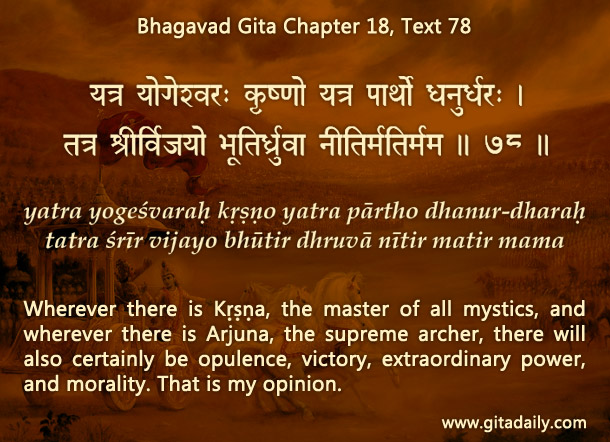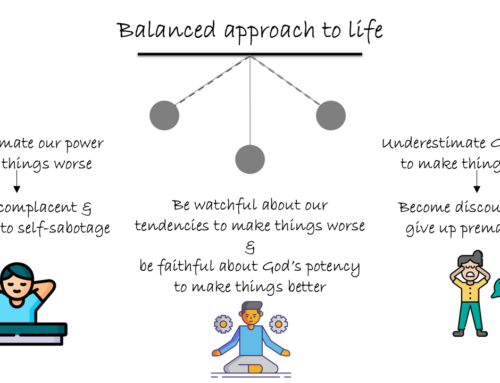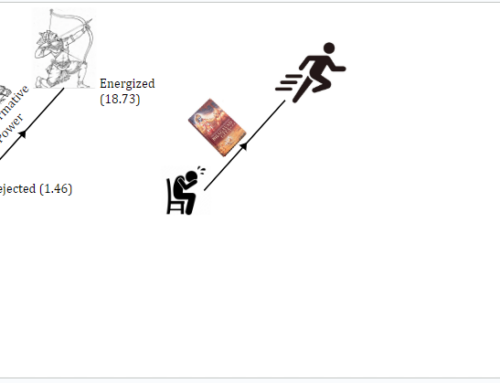
“I surrender.” These words are usually spoken when a combatant lays down arms and accepts defeat.
Krishna in the Bhagavad-gita concludes his counsel (18.66) with a call to surrender. Responding to that call affirmatively (18.73), Arjuna surrenders. Intriguingly though, the Gita ends (18.78) with an image that is the antithesis of the usual picture of surrender. Instead of laying down his weapons, Arjuna has lifted his arms (dhanurdharah). And instead of a pronouncement of defeat, there is a prediction of victory (vijayo).
What makes surrender to Krishna so different from worldly surrender? Love.
Surrender to Krishna breaks down the wall within that prevents his supreme love from reaching us. Without Krishna’s grace, life’s perplexities and perversities dishearten us, leaving us feeling confused and destitute. Such feelings take away our fighting spirit, as happened to Arjuna at the start of the Gita (01.46), when he cast aside his bow in dejection.
But Gita wisdom reminded him of life’s richer realities beyond the obstacles and reversals seen at the material level. Those realities center on spiritual love: Krishna’s unfailing love for us and our latent potential for pure love for him. The more we realize and relish that love by practicing bhakti-yoga, the more we feel lifted above the problems that otherwise threaten to overwhelm us. By surrendering to Krishna, we let him use his omnipotence and omni-benevolence to empower us, thereby rejuvenating our flagging spirits. United in will with Krishna, we attain, as did Arjuna, life’s ultimate victory. That victory is not just the outer triumph in worldly wars, wherein fortunes are inevitably fickle. It is more importantly the inner triumph in the war against the illusions that deprive us of life and love eternal.
Explanation of article:





Hare Krishna prabhuji!
This is a very nice article. By surrendering to Krishna we accept his help in solving our problems of daily life and armed with His love and benovelance we march towards liberation from this material world.
Thank you very much.
Prabhuji, could you please write a gita daily article on the verse 2.47 to help us understand it better?
Thank you Prabhuji for considering my request.
Hare Krishna!
It’s already there in the form of a summarized-transcribed answer here:
http://www.thespiritualscientist.com/2013/02/does-the-gitas-instruction-that-we-work-without-expecting-results-mean-that-we-work-without-salaries/
ys
ccdas
how true
Wonderful article again sir. So its the victory against illusions and all the bad and negative qualities like ignorance, darkness and wrong urges and attachments..So Surrender to Krishna is actually the victory against maya. Hare Krishna.